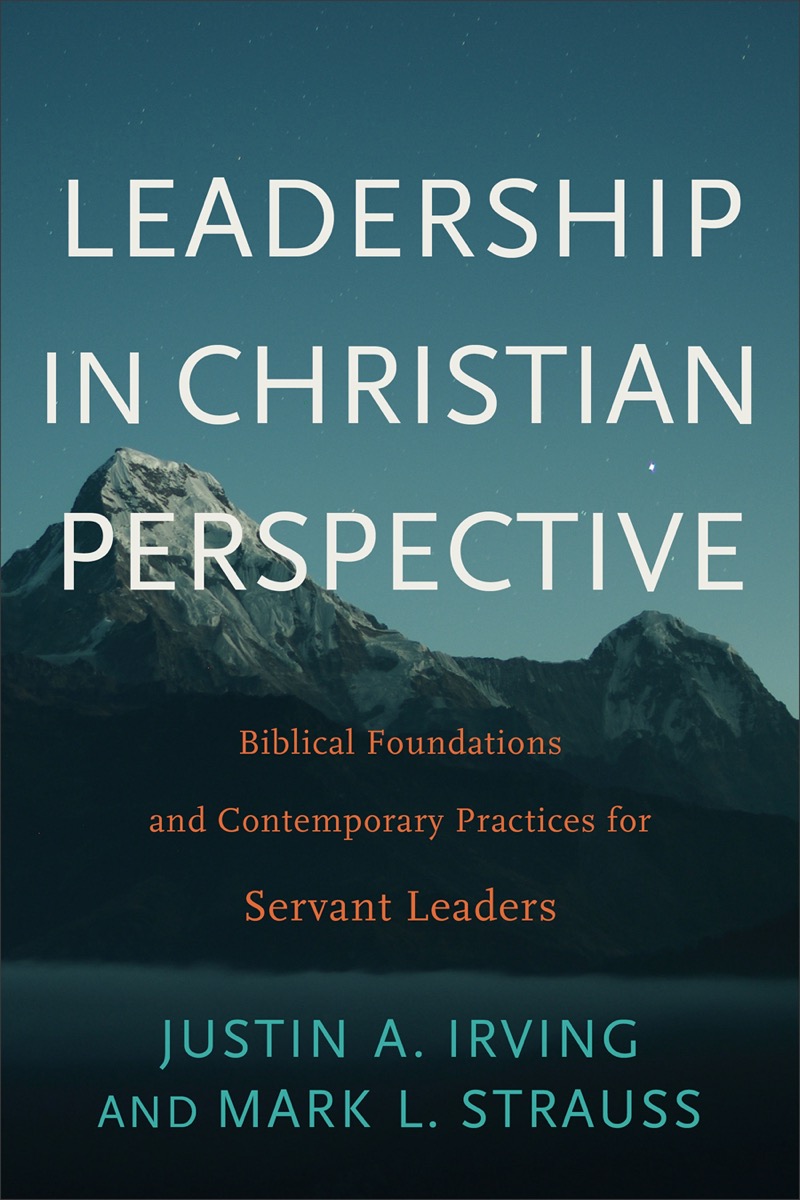 Leadership In Christian Perspective:Biblical Foundations and Contemporary Practices for Servant Leaders, by Justin Irving and Mark Strauss
Leadership In Christian Perspective:Biblical Foundations and Contemporary Practices for Servant Leaders, by Justin Irving and Mark Strauss
Baker Academic 2019
This book marries and intermingles the best of leadership theory with the best of biblical passages. This book clearly steers away from any pragmatic notions. Instead, two sound scholars, one leadership theorist and another biblical interpreter have joined forces to help us understand the leadership theory in light of the Biblical principles.
There are three major components to their model of leadership (the first points to the leader, the second to followers, and the third to the organization’s mission) and these correspond to the three main parts of the book:
- Beginning with authentic and purposeful leaders;
- Understanding the priority of people;
- Navigating toward effectiveness.
Each section comprises three chapters as they break down the major components of their model, and each chapter consists of a three-pronged approach. First, the chapter theme is addressed from the perspective of biblical teaching; second it is discussed from the perspective of contemporary leadership, with reference to Irving’s research; and finally the authors aim to provide an example and encourage reflection on the particular leadership skill demonstrated in practice. Chapters also include a series of practical ‘next steps’, and a short list of relevant books for further reflection.
The authors point out that the real revolution in leadership came in the teaching and leadership of Jesus, and that he introduced a radical new model of leadership called “servant leadership.” His whole life was lived for the benefit of others – to bring them back into a right relationship with God.
Leaders communicate, for better or worse, through their actions, and the perfect example was Paul’s leadership, “follow my example.” In other words, the best way to lead is not to tell people what to do but to show them by example.
To quote the authors, “Love is the defining character trait of an authentic Christian. But love is not defined as an emotional attachment, a feeling of affection, or a romantic longing. It is rather a conscience attitude and intentional actions that seek the best for the other person.”
Reviewed by Deacon Rob Roi
Leadership Lessons From Scripture
Baker Academic 2019
This book marries and intermingles the best of leadership theory with the best of biblical passages. This book clearly steers away from any pragmatic notions. Instead, two sound scholars, one leadership theorist and another biblical interpreter have joined forces to help us understand the leadership theory in light of the Biblical principles.
There are three major components to their model of leadership (the first points to the leader, the second to followers, and the third to the organization’s mission) and these correspond to the three main parts of the book:
Each section comprises three chapters as they break down the major components of their model, and each chapter consists of a three-pronged approach. First, the chapter theme is addressed from the perspective of biblical teaching; second it is discussed from the perspective of contemporary leadership, with reference to Irving’s research; and finally the authors aim to provide an example and encourage reflection on the particular leadership skill demonstrated in practice. Chapters also include a series of practical ‘next steps’, and a short list of relevant books for further reflection.
The authors point out that the real revolution in leadership came in the teaching and leadership of Jesus, and that he introduced a radical new model of leadership called “servant leadership.” His whole life was lived for the benefit of others – to bring them back into a right relationship with God.
Leaders communicate, for better or worse, through their actions, and the perfect example was Paul’s leadership, “follow my example.” In other words, the best way to lead is not to tell people what to do but to show them by example.
To quote the authors, “Love is the defining character trait of an authentic Christian. But love is not defined as an emotional attachment, a feeling of affection, or a romantic longing. It is rather a conscience attitude and intentional actions that seek the best for the other person.”
Reviewed by Deacon Rob Roi
The official communications channel of the Anglican Diocese of Niagara.
Keep on reading
Our Power, Our Planet: Earth Day Webinar Inspires Local Climate Action
Taking Root — Mini Forests and Parish Partnerships
Forming Faith Across the Diocese: Meet Monica Romig Green
Cherishing Creation: Earth Day at Incarnation
Euchre and the Meaning of Life
The Radical Christ: Reclaiming the Heart of Christianity